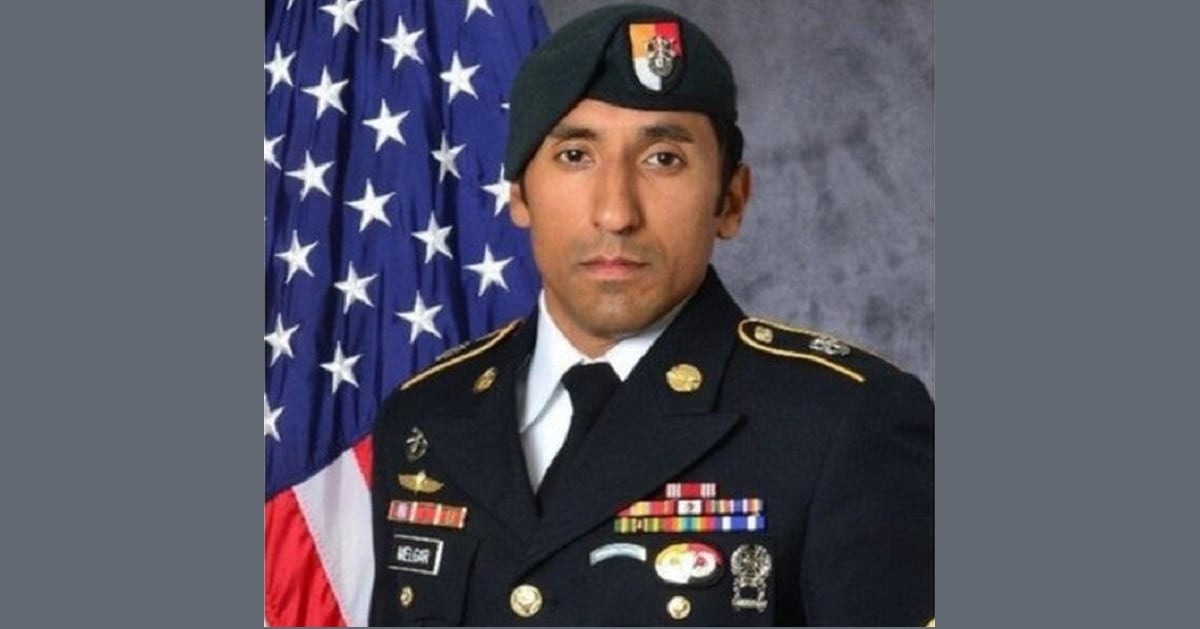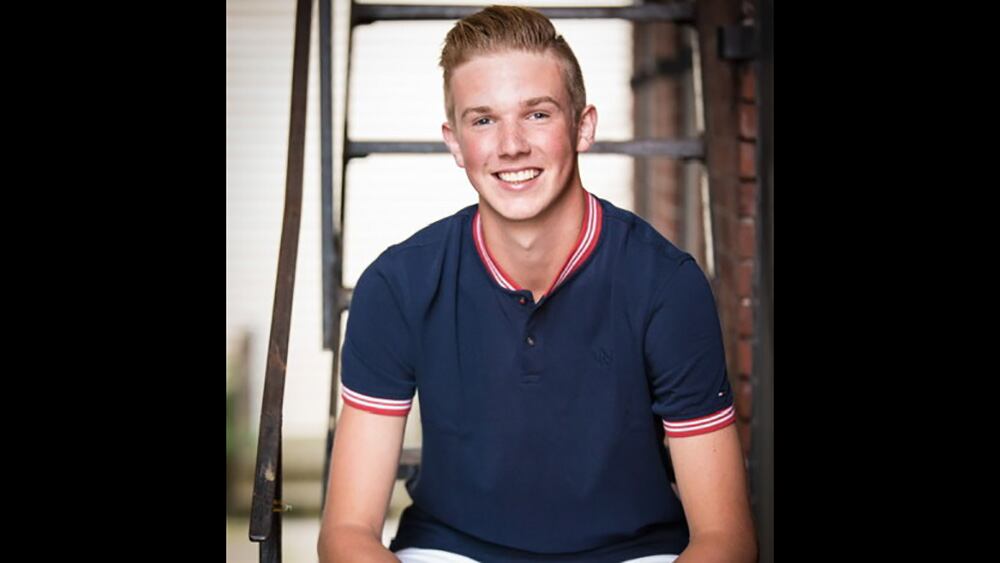QUANTICO, Virginia ― Opening arguments in the case of a Marine reservist charged with the murder of an Emerson College student began June 8.
The prosecution opened the case with a slideshow presentation breaking down the movements of Reservist Lance Cpl. Samuel London on the night and early morning of Sept. 27 and Sept. 28, 2019, when he was home on leave.
London is charged with the murder of student Daniel Hollis, manslaughter, assault consummated by battery and wrongful use of a controlled substance related to alleged cocaine use several hours before the fight.
The trial started with an allegation by prosecutors that London had snorted cocaine at a friend’s apartment before going to bars.
RELATED

Shortly after 1 a.m. on Sept. 28, 2019, after the the bars started closing, London and two friends, Jacob Ryles and Robert Pankov, had wandered the streets of the Boston’s Allston neighborhood in search of a lighter, Capt. Tim Dean, the lead prosecutor on the case, told jurors June 8.
Around 1:20 a.m. the three men came across several members of the women’s and men’s lacrosse teams at Emerson College, which included Daniel Hollis. Many of the lacrosse players had been drinking and smoking weed at a beginning-of-term party, Dean said.
The prosecution stated that Hollis had a blood alcohol content of 0.14 and was smoking weed the night of his death.
Hollis was a tall and “lanky” 19-year-old sophomore and a goalie on the Emerson lacrosse team.
After a short scuffle between the group of lacrosse players and the three men, Hollis ended up knocked out on the bricks of his friend’s apartment building, bleeding from behind the ears.
He was rushed to the hospital and a month later died from injuries he sustained that night.
The prosecution and defense agree on large portions of what happened.
The defense does not contest that London was around cocaine prior to going to the bars that night. The defense, however, maintains he never snorted any.
Lead defense lawyer Maj. Albert Evans said the government does not have a single witness, urinalysis nor toxicology report that shows London did any cocaine that night.
The defense also does not contest how London and his friends first contacted the lacrosse players.
A couple of players had been outside smoking cigars and one of London’s friends had headed over to ask for a lighter.
Soon all three men were on the walkway of the apartment interacting with more than six of Hollis’ friends.
But what happens next is the most disputed part of the case.
“It all comes down to five minutes,” Evans said.
‘Goodnight grandmas’
The prosecution says that when the trio walked away from the larger group of lacrosse players one of the three had said either, “Goodnight ladies” or “See you later, ladies.”
An Emerson student had replied with something like, “Goodnight grandmas,” lead prosecutor Dean told jurors.
The comment caused London to “flip out,” Dean said, leading to him to charge into the group of college students and punch three people, including Hollis.
But the defense claims another comment set off the dispute and that it was the lacrosse players, not London and his friends, who started throwing fists.
Tensions arose when London and Ryles had started to speak Russian to each other, the defense claimed.
When one of the college students asked what language they were speaking, Ryles sarcastically replied it was Spanish, Evans said.
It was then that one of the lacrosse players, Skyler Celotto, starting yelling, “I will f*cking kill you” at the three men, Evans claims, and went after them.
“‘I will f*cking kill you’ is the last thing Lance Cpl. London heard before getting pummeled,” Evans said.
Evans later claimed that the only punch London threw that night was an off-balanced shot at Celotto.
Calloway Myers, the second witness called, testified that the Russian-speaking incident happened just before the fight broke out, and that he did “bear hug” Celotto, because he knew Celotto had a history of being overly aggressive.
But Myers maintained that London and his friends had started the fight and that there had been plenty of time for them to peacefully leave instead.
Dean showed the jury a picture that had been taken of London’s swollen hand.
“This is what your hand looks like when you’ve broken it on a college kid’s face,” Dean told the jury.
That comment was objected to by Evans and the jury was told to ignore the statement.
The defense claimed a knockout punch caused Hollis to fall onto the bricks without the ability to brace himself.
But Evans said there was no forensic evidence that Hollis was punched and noted that no single witness has ever previously testified they saw London hit Hollis.
‘An absolute tragedy’
In 2020, a Suffolk County, Massachusetts, grand jury had opted not to indict London for his alleged role in Hollis’ death.
Several witnesses expected to appear in this June murder trial previously had given sworn testimony before that grand jury.
On June 8 lead defense lawyer Evans also disputed Hollis’ role in the fight.
He claimed that instead of trying to break up the fight, Hollis was an active participant.
He showed a picture of Hollis’ hand with cuts on it that had been taken in the hospital. Evans said a forensic expert would testify that those cuts were consistent with ones received punching someone in the mouth.
The prosecution did not speculate about the exact reason Hollis fell and hit his head. But Dean later said the trio had taunted the group of lacrosse players as they had walked away, while Hollis lied on the steps bleeding.
Myers, as a witness, said he did not remember the three men saying anything after they left the fight.
The trial is scheduled to take up to two weeks and witnesses from both sides of the fights, along with officers from the Boston Police Department and forensic experts, are expected to take the stand.
“This case is an absolute tragedy, we can all agree on that,” Evans said.
While maintaining London’s innocence, Evans said, “everybody that night bears some responsibility.”





